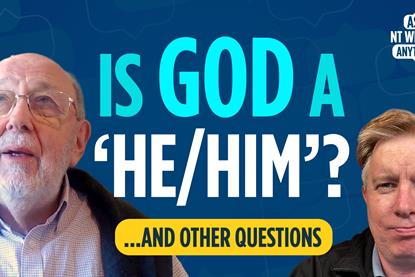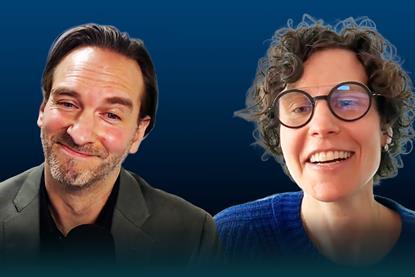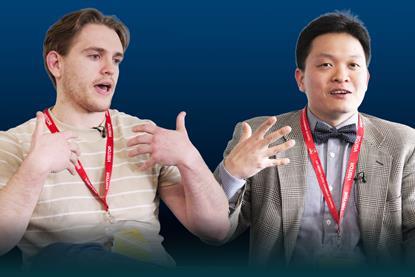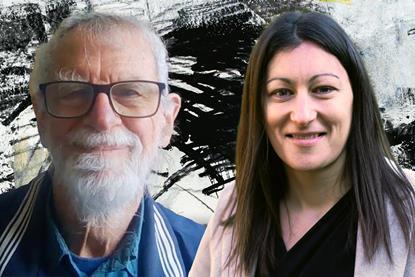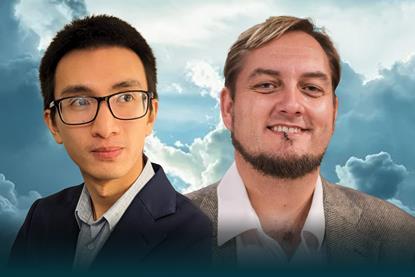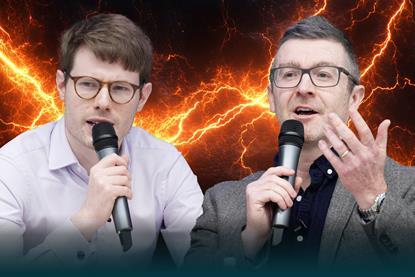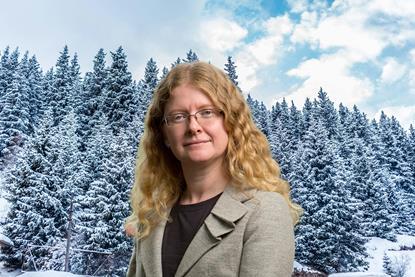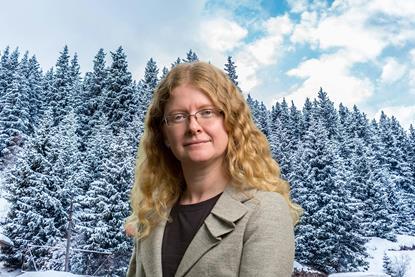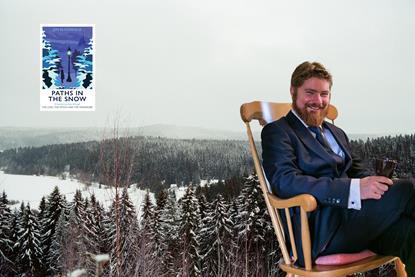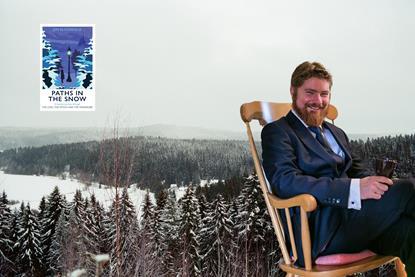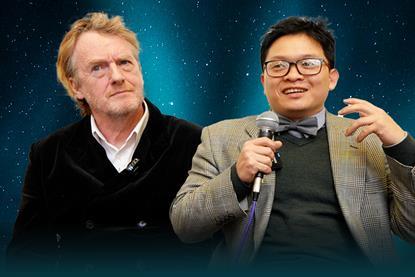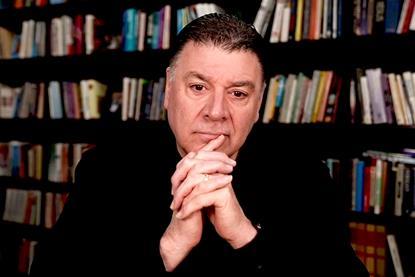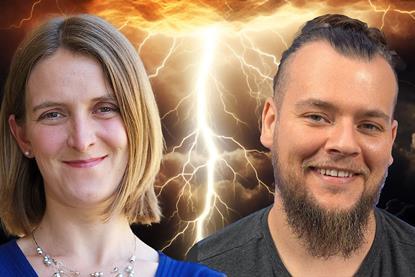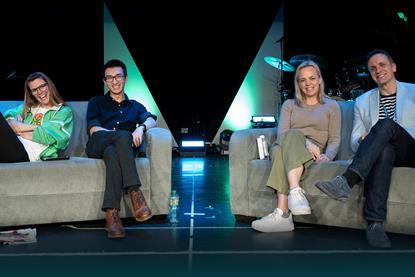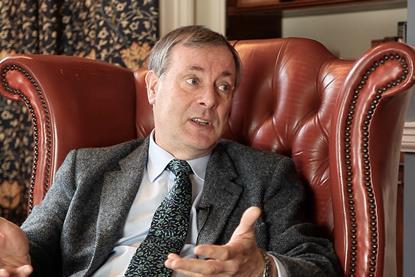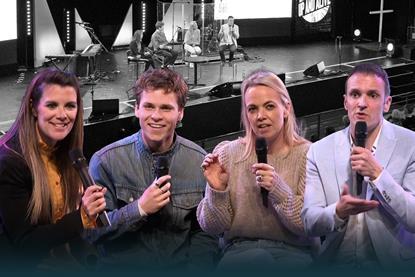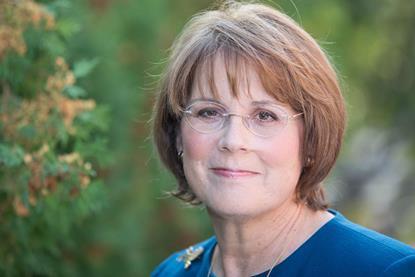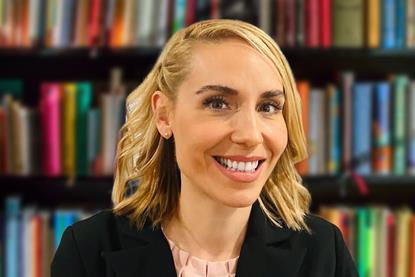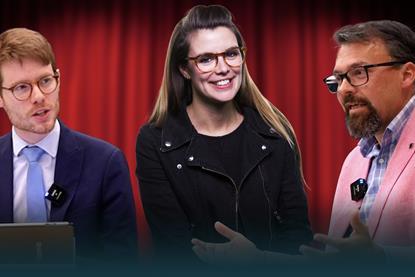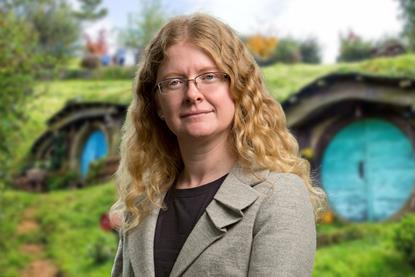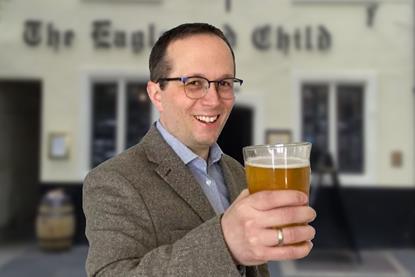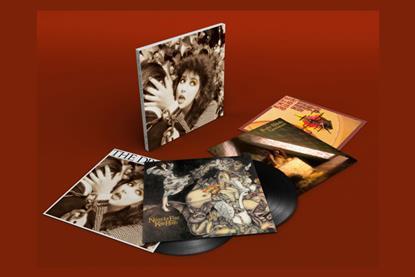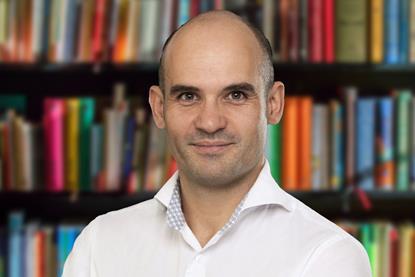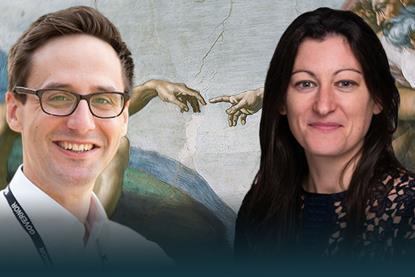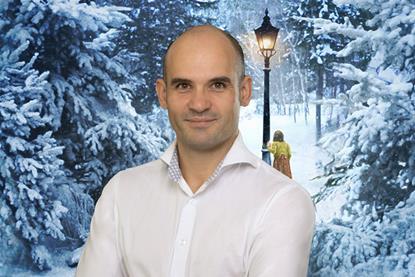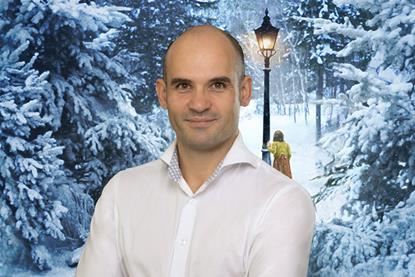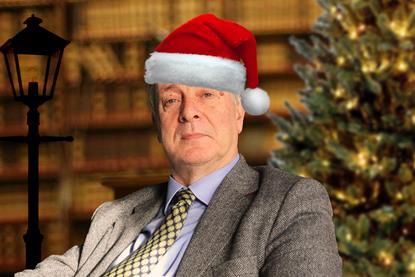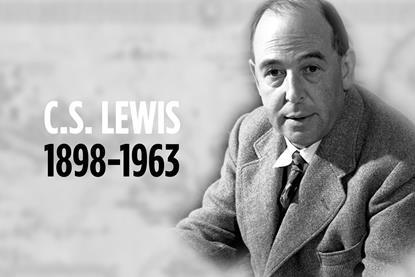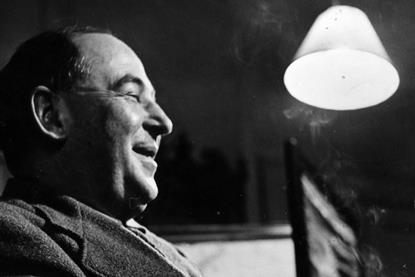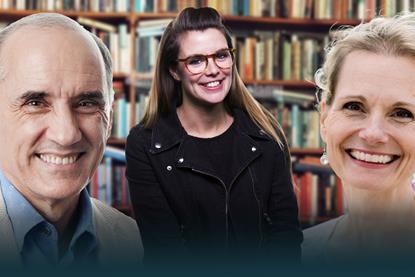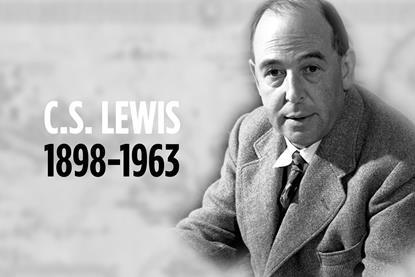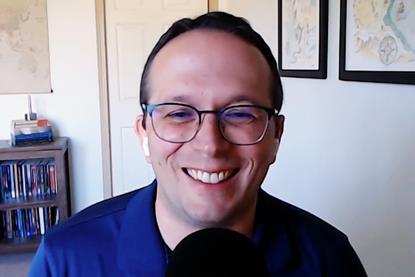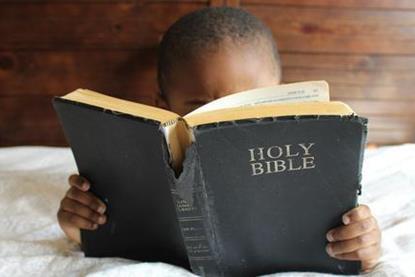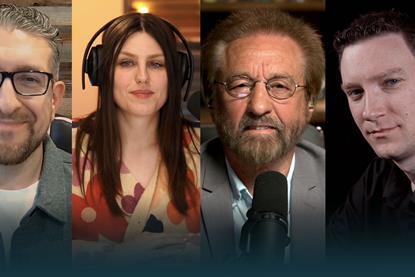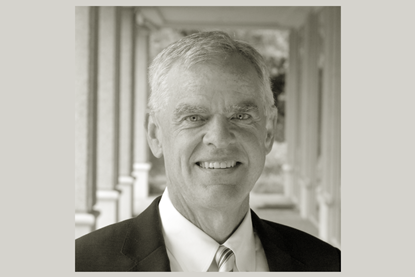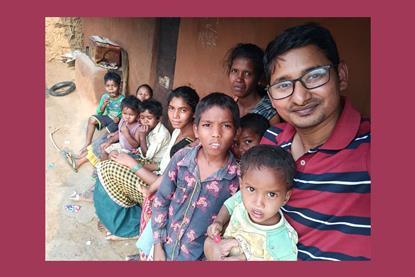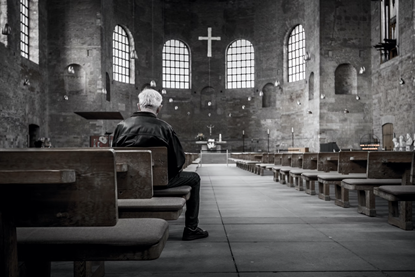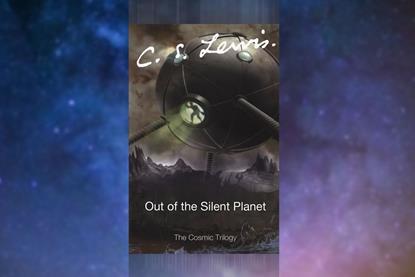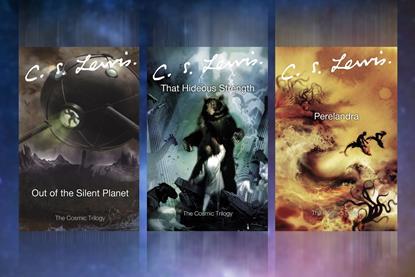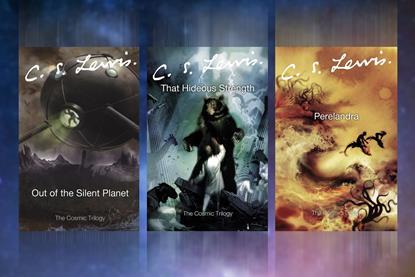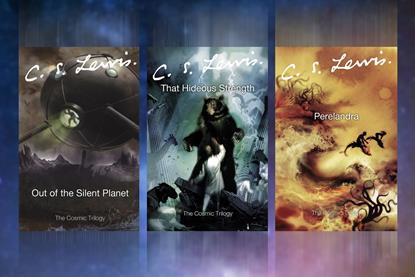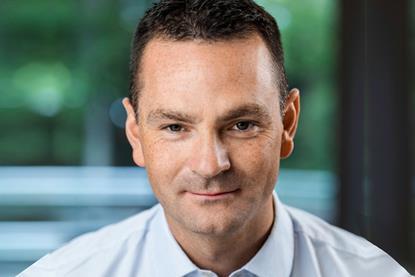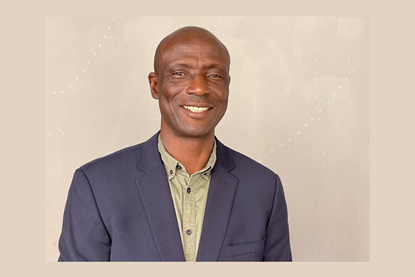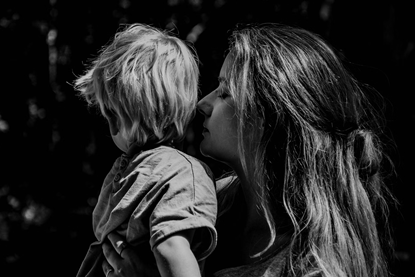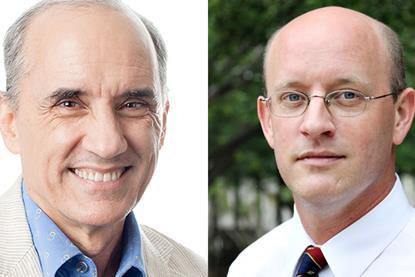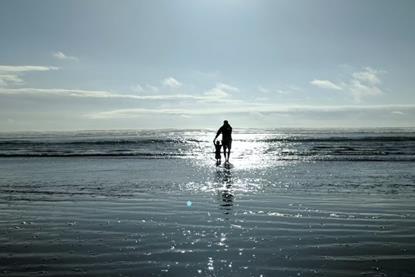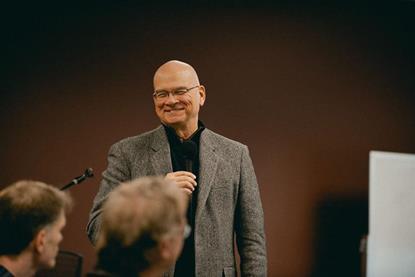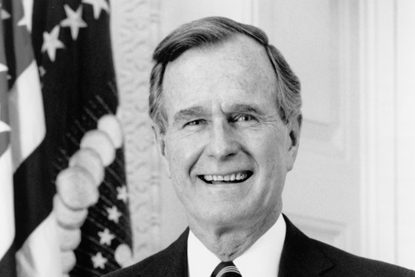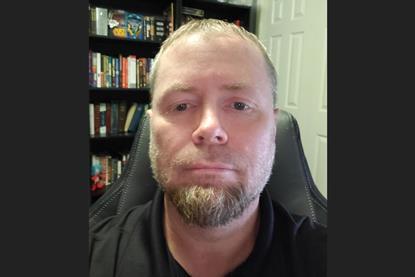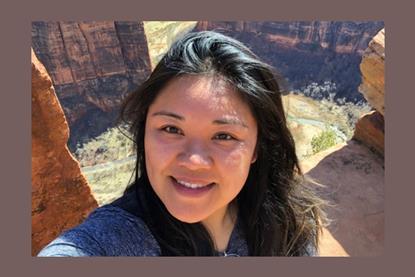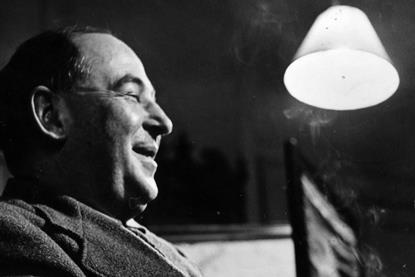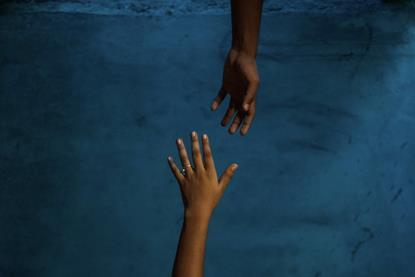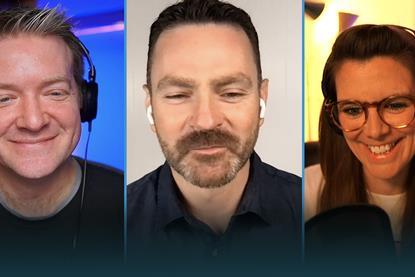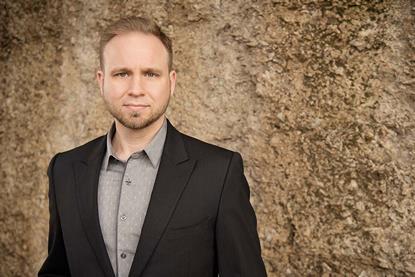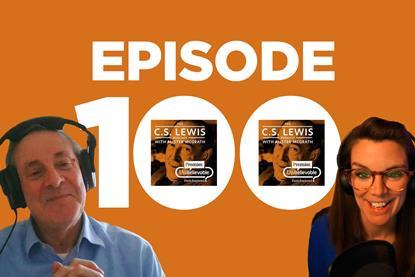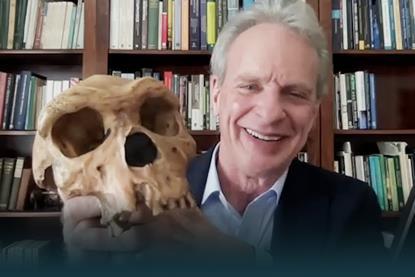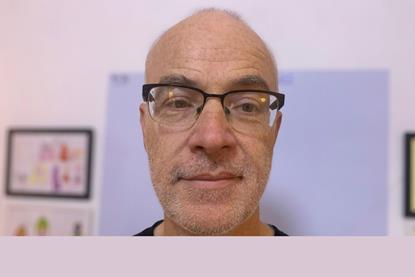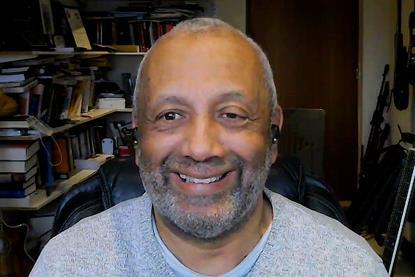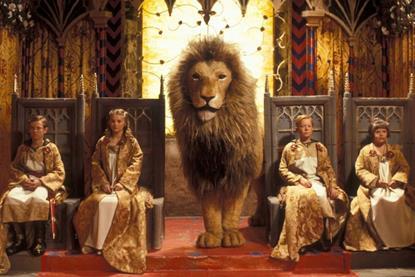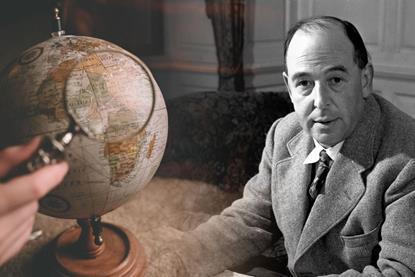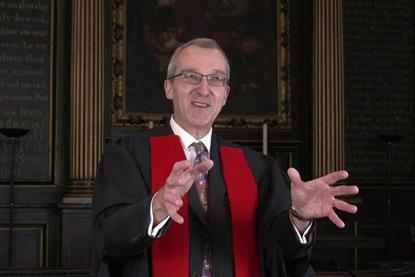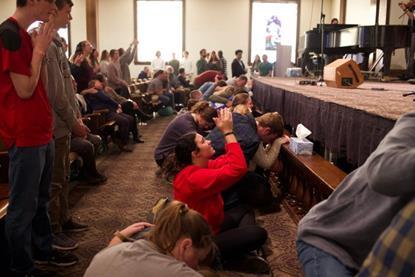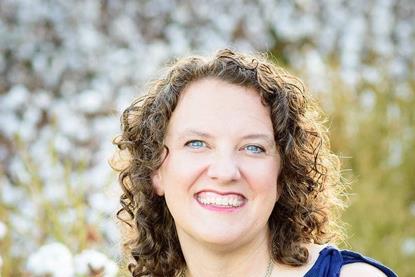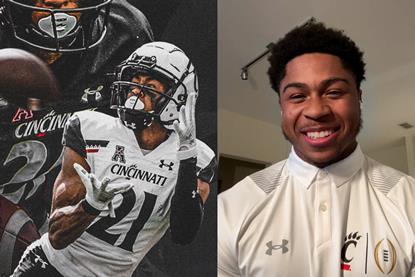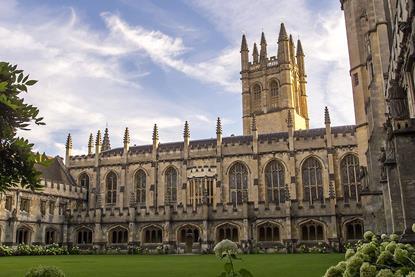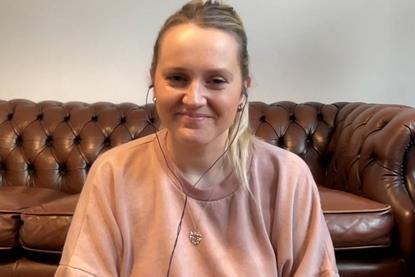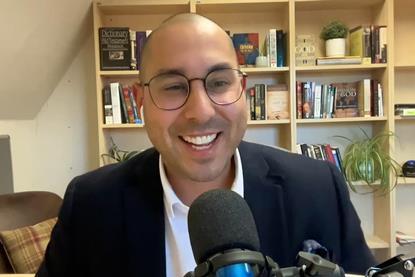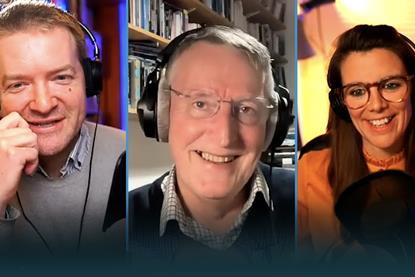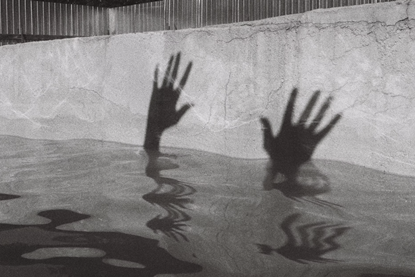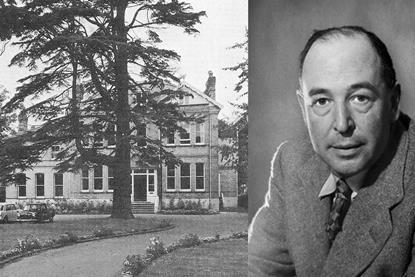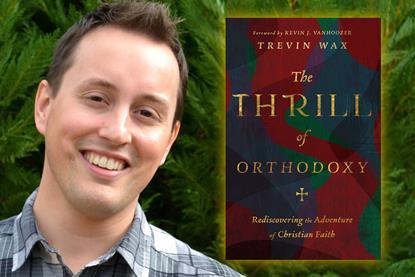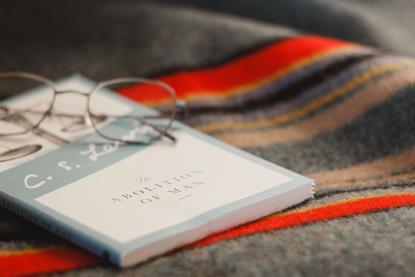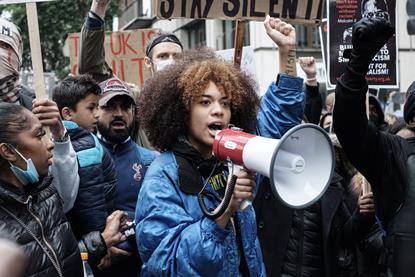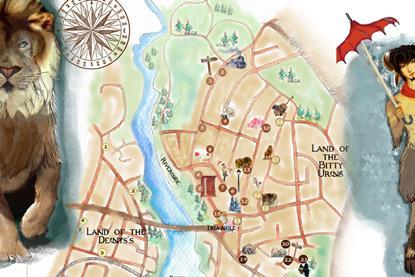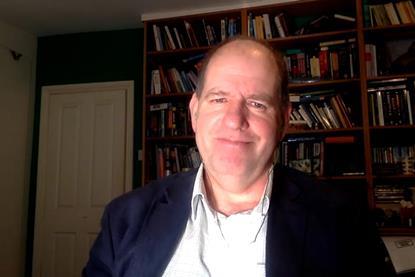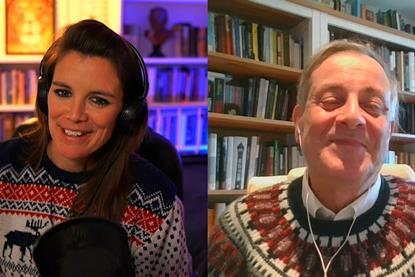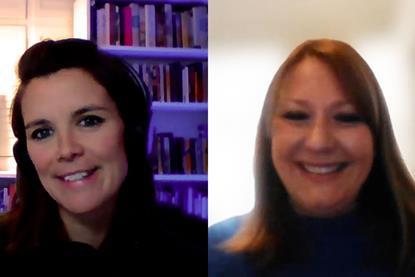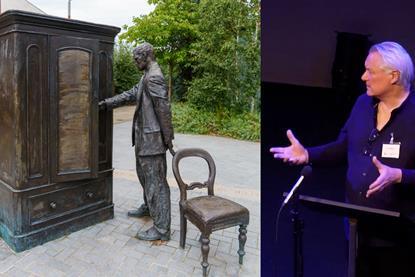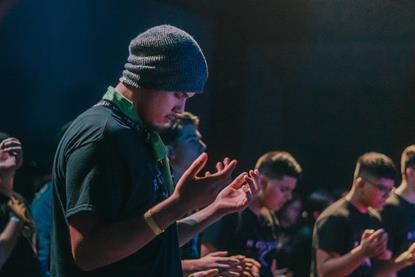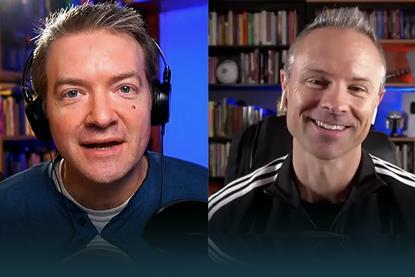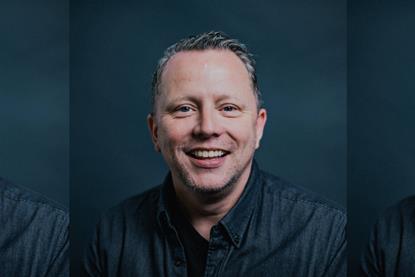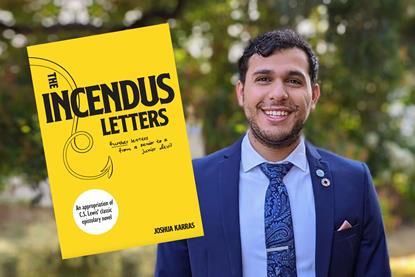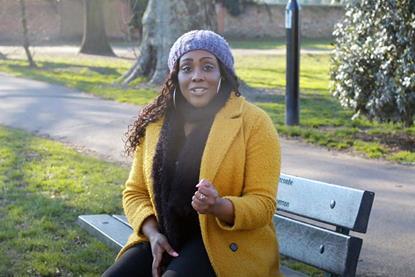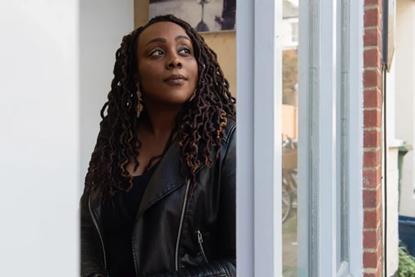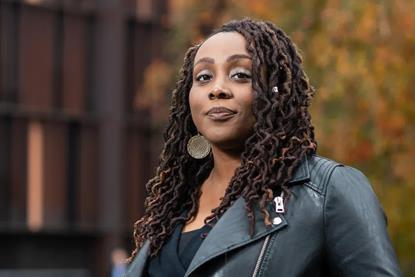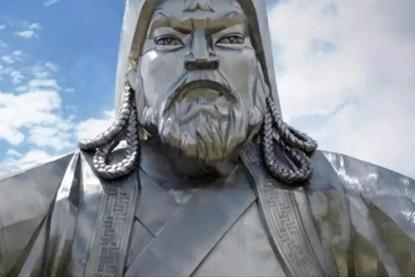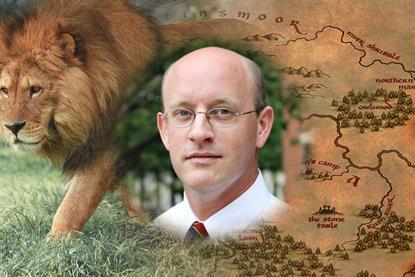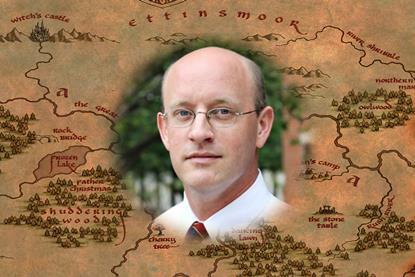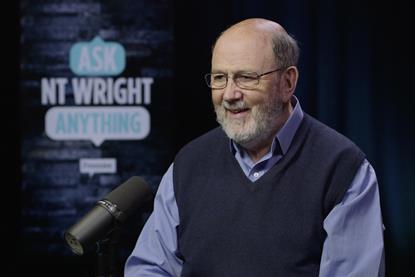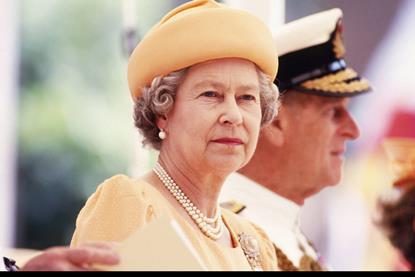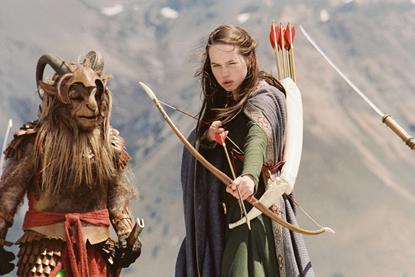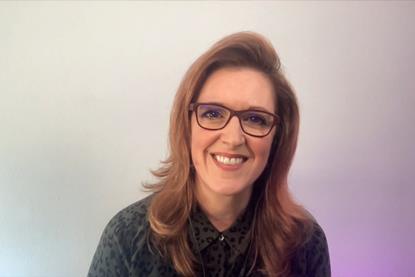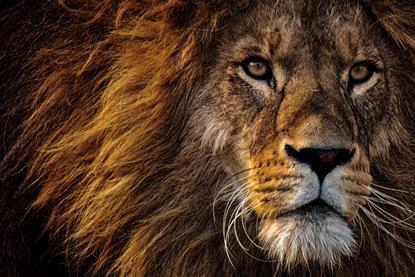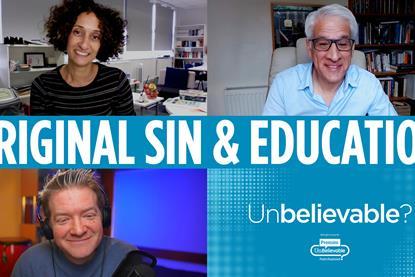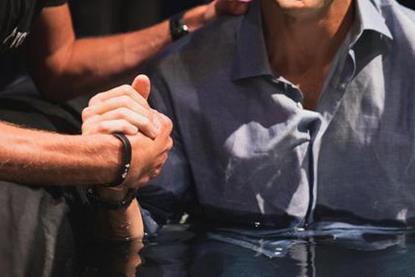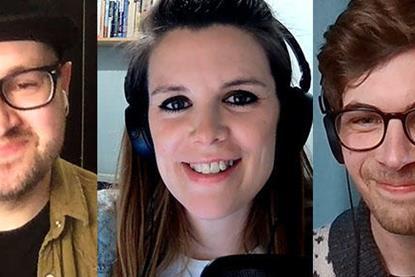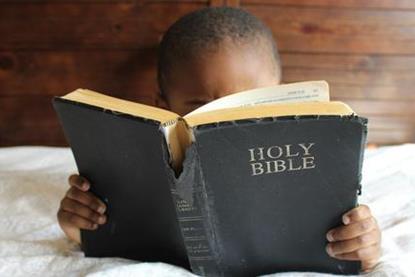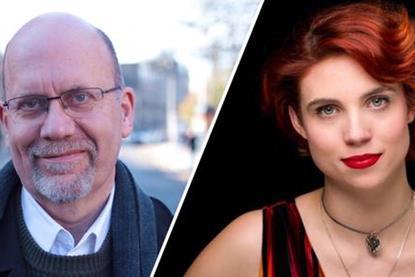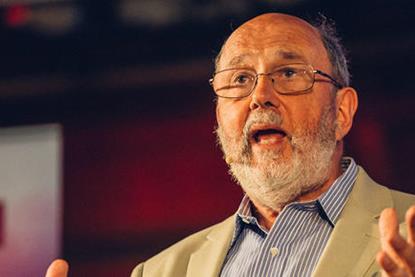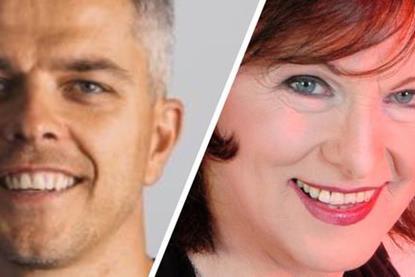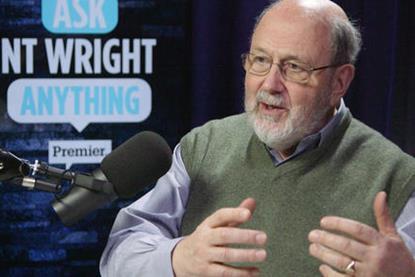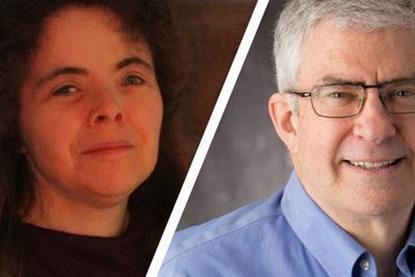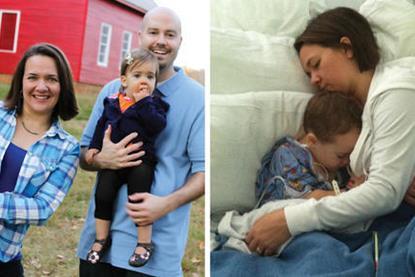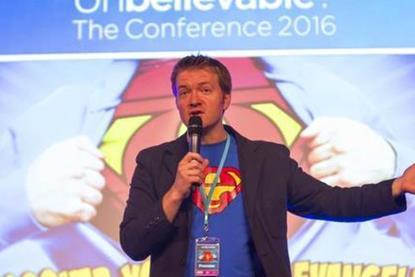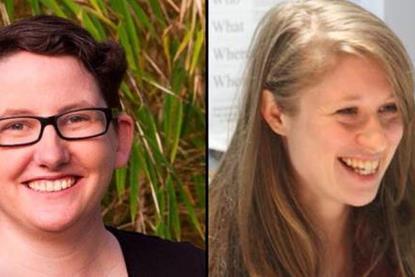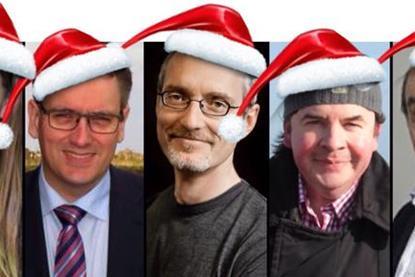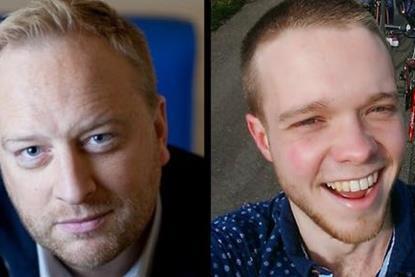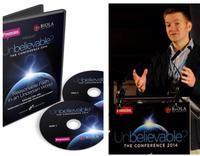Children & young people
We Tried Pizza and Games. Here’s What Really Reaches the Next Generation.
After years of trying to entertain young people into faith, Erik Strandness says it’s time to rediscover the power of real conversation - where questions matter more than lectures.
Is God male? NT Wright on gender and divinity
What does the bodily resurrection really mean for Christian faith? How do we live out true discipleship? And how should we talk about God in relation to gender?.
Can therapy alone heal the soul? Two Psychiatrists Treating BPD & NPD Explore the Search for Meaning | Brandon Unruh vs Claire Brickell hosted by Vince Vitale
Exploring BPD, NPD and Meaning in Christian and Secular Psychiatry.
Adult Conversion vs Leaving the Faith: What’s More Meaningful? Matthew Su & Nathan Ormond | Schools Debate Special
Is it more meaningful to choose Christianity as an adult, or to walk away after growing up in it? In this special schools episode, teenagers ask the tough questions as host Sam McKee moderates a gripping debate between Matthew Su, a Christian convert and PhD candidate at Cambridge, and Nathan Ormond, ex-Christian and creator of the Digital Gnosis YouTube channel.
Cancer, War and the God Question: why so much suffering?
Why does a good God allow violence and suffering — even in the Bible?
Are Christians too caught up in the Culture Wars? Ben Chang vs Jonty Langley hosted by Andy Kind
Are we trapped in an endless culture war? Have Christians become more focused on politics than the person of Jesus? Are terms like cancel culture and postmodernism helping us understand the world, or just fuelling division?
Is this the end? Plummeting birth rates, the future of humanity and the meaning of children
Global birth rates are declining across the globe, raising concerns about societal impacts and the sustainability of populations. This episode explores potential causes and the Christian perspective on the value of having children in light of this trend.
Does Suffering disprove God? Simon Edwards v Harry Amos
Can belief in a loving God withstand the reality of suffering? In this special live debate hosted in front of a live student audience in partnership with Youth For Christ in Aylesbury, Unbelievable? brings together two compelling voices to tackle one of the most profound questions in philosophy and theology: does suffering debunk the existence of a God? Can a good God allow such suffering? And does God send good people to hell?
The CS Lewis Podcast #190 Holly Ordway: Tolkien’s Father Christmas letters
For 23 years JRR Tolkien wrote to his four children as Father Christmas. Dr Holly Ordway, author of Tolkien’s Faith, explores Tolkien’s creative, humorous writing around Father Christmas and his companions, including his Polar bear assistant, snow-elves, the Man in the Moon and goblins!
The CS Lewis Podcast #189 Holly Ordway: What did Christmas mean to JRR Tolkien?
How integral was the incarnation for JRR Tolkien? Does Christmas feature in The Lord of the Rings legendarium? How did the Tolkien family celebrate Christmas? Dr Holly Ordway, author of Tolkien’s Faith, shares her thoughts on what Christmas meant to Tolkien and explores a recently discovered poem of his, Noel, which is one of his most overtly Christian works.
The CS Lewis Podcast #188 Jem Bloomfield: Christmas in Narnia
Dr Jem Bloomfield, assistant professor of literature at the University of Nottingham and author of Paths in the Snow, unpacks the Christmas references as well as key elements, such as the stone table and the titles of the Pevensie children, within The Lion, the Witch and the Wardrobe.
The CS Lewis Podcast #187 Jem Bloomfield: Paths in the snow
As Christmas approaches, we unpack some of the key elements in The Lion, the Witch and the Wardrobe with Dr Jem Bloomfield, assistant professor of literature at the University of Nottingham and author of Paths in the Snow.
The Divine Debate: Is Morality Rooted in God? Atheist Stephen Law vs Matthew Su hosted by Ruth Jackson
Is faith necessary for a moral life? Is belief in God essential for a meaningful moral framework, or can secular philosophy provide all the answers? This week on Unbelievable?, host Ruth Jackson welcomes two dynamic thinkers to explore the profound debate of God’s role in our moral universe.
#120 James Emery White: Is online church the way forward?
What are the dangers of online and how do we navigate them? How can we respond to AI? What is TikTok spirituality and why should we engage with it? How has the digital world impacted our relationships? Is online church just watching TV or is a hybrid model the only way forward? Dr James Emery White, author of Hybrid Church, explores questions around digital outreach and Church.
Why Doesn’t God Stop Suffering? Stephen Woodford vs Sharon Dirckx Debate Hosted by Ruth Jackson
Round two on Unbelievable! Dr. Sharon Dirckx vs. Stephen Woodford heats up the debate on Christianity’s impact on human values.
The CS Lewis Podcast #168 Philip Tallon: What if God isn’t good?
Did Lewis want to rewrite some of his earlier work on suffering in light of his own experience of pain and loss? Did Lewis doubt the existence of God or question his character during these times? What words of encouragement would Lewis give to those in the throes of suffering? Dr Philip Tallon explores A Grief Observed and The Problem of Pain. He also shares how to help younger readers engage with Lewis.
Does the Bible condone slavery? #NoQuestionOffLimits Amy Orr-Ewing, Ben Thomas, & Ben Chang hosted by Ruth Jackson
Joining us on the panel is the renowned public theologian and author of several books including Why Trust The Bible? Dr. Amy Orr-Ewing, Dr. Ben Thomas, an international speaker and consultant anaesthetist from OCCA the Oxford Centre for Christian Apologetics, and Dr. Ben Chang, an A&E doctor and author of Christ and Culture Wars.
Are screens in the home damaging our kids?
Theologian and author Andy Crouch spoke about the dangers of technology on a recent episode of Matters of Life & Death. Journalist Tim Wyatt explores Crouch’s arguments
Ask NT Wright Anything #221 Big Questions for Tom from Children: why did God make mosquitos? why does this world suffer?! did God create hell? (Classic)
Tom answers children’s questions on today’s show and tackles some of the ways we talk to children about tricky things like suffering and hell (and mosquitos!) 🦟.
The CS Lewis Podcast #161 Alister McGrath: Your questions answered
Professor Alister McGrath joined Ruth Jackson for a webinar answering live questions about CS Lewis, including how Lewis used modern media, whether there is a “modern day Lewis” and how we navigate some of the potentially racist terms within his work.
Is God anti-gay? (and other questions) Live Q&A with Amy Orr-Ewing, Jesse Fellingham, Ben Thomas and Ruth Jackson
Where is God in my friend’s suicide? 😭 Is God anti-gay? 👀 Do Christians and Muslim’s worship the same God?… 🔥 ☪️ ✝️ In today’s episode we’re taking you to the recording of a live event we call NO QUESTION OFF LIMITS.
The CS Lewis Podcast #157 Kathy Keller: One of the last people to correspond with Lewis before his death
As we approach the one year anniversary of apologist Tim Keller’s death on May 19th, we caught up with his wife Kathy Keller who corresponded with CS Lewis as a child. Why did she write to Lewis? How did he respond? What are some of the stories he shared with her? What was it like meeting Warnie Lewis? Plus, we hear the impact of CS Lewis and JRR Tolkien on Tim and Kathy and we hear whether they really did speak Elvish together at home.
Unapologetic #103 Rachael Heffer: Are young people more spiritual?
In the final part of their conversation about the Talking Jesus research, Rachael Heffer, head of mission at the Evangelical Alliance, shares her thoughts around some important questions. Why are young people leaving the Church? How do we navigate tricky cultural conversations? What are her top tips for family discipleship?
Unapologetic #101 Rachael Heffer: What does the UK think about faith?
Rachael Heffer, head of mission at the Evangelical Alliance, shares her thoughts around the Talking Jesus research. What do the UK public think about the Church, Christians and Jesus? Who are the “nones” and why has there been such a rise in this category of people? What questions are young people asking? Are people actually interested in God?
Unapologetic #99 Sarah Irving-Stonebraker: How can we be effective priests of history?
Associate Professor Sarah Irving-Stonebraker, author of Priests of History, explores the results of ahistoricism in the Church. Does disconnection from the past lead to individualism? How do we use ancient spiritual practices in a modern setting? Can history help us to use our time well?
Unbelievable? The resurrection: Fact or fiction? Harry Amos vs Joe Boot hosted by Ruth Jackson
Did Jesus really rise from the dead? Is there any good evidence to support the resurrection? Are alternative explanations more compelling? Can we trust the biblical narratives? Ruth Jackson hosted a live debate at a school with the help of Aylesbury Youth for Christ. She was joined by Rev Dr Joseph Boot, founder and president of the Ezra Institute for Contemporary Christianity, and Harry Amos, who moved from Christianity to “agnostic atheism” while studying philosophy, politics and economics and blogs about his experience at The Book of Amos.
The CS Lewis Podcast #149 Holly Ordway: Tolkien’s faith
Ahead of Tolkien Reading Day on 25th March, Dr Holly Ordway, author of Tolkien’s Faith, shares her thoughts about Tolkien’s Catholic faith. She explores the relevance of his work, looking at whether it will stand the test of time.
Unapologetic #95 Jay Y Kim: Doubt and deconstruction
Jay Y Kim, a pastor in Silicon Valley and author of multiple books including Listen, Listen, Speak, shares his experience of losing and rediscovering his faith. What are some of the reasons people leave the Church or aren’t even remotely interested in the first place? What should we do with our doubts? How do we ensure everyone feels welcome?
The CS Lewis Podcast #148 Ruth Jackson: Where it all began
The microphone is turned on Ruth Jackson as she is interviewed by David Bates from Pints With Jack. Originally broadcast in 2021 just after the launch of The CS Lewis Podcast, Ruth shares the vision behind why and how it started. Plus, shout about the show to win yourself a free copy of CS Lewis: A Life by Professor Alister McGrath.
Michael Gungor’s deconstruction: Can we keep the baby when we throw out the bathwater?
Erik Strandness reflects on a show featuring musician Michael Gungor and pastor Evan Wickham on millennials, music and mystical deconstruction
What do Kate Bush and Jesus have in common?
Author Drew Cordell looks at why Christianity is worth investigating
Unapologetic #88 Phil Knox: Why do we need friends?
Evangelist Phil Knox, author of Story Bearer and The Best of Friends, shares why personal tragedy and the COVID pandemic led him to write a book about friendship. Why does friendship matter? How do we protect our friendships from modern pressures? And how do we help young people to engage healthily with technology and social media?
Unbelievable? Does secular humanism or Christianity offer a brighter future? Sara Stevenson vs Neil McKain
Andy Kind hosts today’s Unbelievable where the debate topic is Does Secular Humanism or Christianity offer a brighter future for the UK?
How should we engage with people who are deconstructing?
Whose fault is it when people deconstruct? What can we do about it? How do we help them to move forward? Erik Strandness reflects on deconstruction and reconstruction following an Unbelievable show on this topic
Matter of Life & Death: Egg freezing: The ticking biological clock, prosecco and cheese evenings, the culture war over maternal age, and living with wisdom and contentment
Increasing numbers of women are choosing to freeze their eggs in the hope that years down the line they can use these younger, healthier eggs to have children once their relationship, personal, financial or work circumstances are right.
The CS Lewis Podcast #140 Sarah Irving-Stonebraker: Does history matter?
Associate Professor Sarah Irving-Stonebraker shares how significant CS Lewis was in her journey from atheism to Christianity. As an academic historian, she explores how great books speak to ever-present questions and looks at why the past matters. Why is Lewis still relevant 60 years after his death?
The CS Lewis Podcast #139 Phil Knox: The fate of the unevangelised
In the second part of his discussion about why The Narnia Chronicles make him cry, evangelist Phil Knox looks at why Prince Caspian contains one of the best definitions of evangelism.
The CS Lewis Podcast #138 Phil Knox: Why the Narnia Chronicles make me cry
”Daddy, why are you crying? It’s only a lion!” Evangelist Phil Knox shares his experience of reading The Narnia Chronicles with his young son and the impact these books have had on his own life. Why is The Lion, the Witch and the Wardrobe significant for so many people? And how does The Horse and his Boy depict the Christian story so profoundly?
Did CS Lewis like Christmas?
Professor Alister McGrath shares his thoughts about how Lewis perceived the festive season and what we can learn from him
The CS Lewis Podcast #135 David Bates: What did Christmas mean to Lewis?
David Bates from Pints With Jack shares some of CS Lewis’ thoughts about Christmas. What are some of his key works that elucidate this topic? Did the festive period lose its significance when Lewis became an atheist? Plus, we catch up on how the inaugural CS Lewis Reading Day went last month.
Why we must change the way we do mission
Charity worker Simon Foulds shares why he thinks a new framework for mission is needed
The CS Lewis Podcast #133 Alister McGrath: Was Lewis a prophet and does he speak to contemporary cultural issues?
Professor Alister McGrath and Ruth Jackson continue their discussion about whether CS Lewis is still relevant. Was he something of a prophet? What can we learn about the way Lewis engaged with modern media? How did he make complicated theological concepts relatable? In what ways has Lewis influenced our culture and is he able to speak to contemporary topical issues, such as transgenderism?
The inaugural CS Lewis Reading Day: Why should Tolkien geeks have all the fun?
CS Lewis podcaster, David Bates, shares why he helped initiate a campaign to commemorate Lewis with an annual Reading Day on November 29th
Unbelievable? 60 years after his death, are CS Lewis and his God still relevant?
Ruth Jackson hosts a discussion about a 20th Century British writer and lay theologian who is arguably one of the most influential voices in modern Christianity. On November 22nd 1963, Clive Staples Lewis – Jack to his friends – died in Oxford, England. However, 60 years after his death, is CS Lewis still relevant?
The CS Lewis Podcast #132 Alister McGrath: 60 years after his death, does Lewis still speak to our heads and hearts?
On November 22nd 1963, Clive Staples Lewis – Jack to his friends – died in Oxford, England. 60 years after his death, we discuss whether he is still relevant today. Are any of the accusations levelled against Lewis legitimate? Why does he continue to speak to our rationality and imagination? Plus, Professor Alister McGrath shares the influence Lewis had on his own journey of faith.
The CS Lewis Podcast #131 David Bates: CS Lewis Reading Day
David Bates and his team at Pints With Jack have helped establish a day to celebrate CS Lewis and his work. His fellow Inkling, JRR Tolkien, already has a special reading day, but “why should the Tolkien nerds have all the fun?”! Listen in to hear why David thinks Lewis is still relevant today and how you can get involved with the inaugural CS Lewis Reading Day on Lewis’ birthday - November 29th.
Ask NT Wright Anything #192 Big questions from and about children (Classic)
From 2020: Tom answers listener questions on how to talk to children about tricky things like suffering and hell. Plus, we talk about parenting and discipling children and young people
Was Halloween originally a Christian festival?
Matt Arnold, editor of The Christian Parapsychologist Journal, explores the origins of Halloween and suggests they are firmly rooted in the Church
Unbelievable? Is Halloween harmless fun?
Get ready for a spine-tingling edition of Unbelievable. Hosted by Billy Hallowell, we’re diving headfirst into Halloween hysteria. Is it all innocent fun or something more sinister? Join the conversation with ex-healer Angela Ucci, pastor Ray Comfort who after being petrified of Halloween decided to use it to tell people about Jesus. Rounding up the discussion Unbelievable welcomes Matt Arnold, editor of The Christian Parapsychologist Journal. We’ll uncover the mysteries, explore the spiritual realm, and ask the big question: should we celebrate?
Matters of Life & Death: Baby loss 2: Rising abortion numbers, pills by post, ‘the pregnancy remains’, and Schrodinger’s fetus
We spoke last week about the hugely welcome shift in how society talks about miscarriage and cares for women (and men) who have experienced it. And yet at the same time in Britain, we desperately avoid using the same language and narrative established in baby loss services when we are in the abortion zone.
I don’t need God: How tragedy compelled an atheist to rethink his disbelief
Athiest Warren Prehmus had no need for God. However, when personal tragedy struck, he began to question his presuppositions and explore Christianity. Researcher Jana Harmon shares his story
Transformed: How a despised Indian child became an evangelist
Jehu Limma, founder of HopeGiving Foundation, shares his remarkable journey from “untouchable” to helping children out of poverty
Does deconstruction signal the death of faith?
Erik Strandness reflects on deconstruction and reconstruction following an Unbelievable show on this topic
The CS Lewis Podcast #123 Out of the Silent Planet: Death, suffering and The Fall
In the final episode on Out of the Silent Planet, Alister McGrath explores Lewis’ depiction of humanity, death, evolution and suffering. He also discusses the framework Lewis provides to help us reflect on these big questions.
The CS Lewis Podcast #119 Has The Space Trilogy stood the test of time?
Alister McGrath concludes his introduction to Lewis’ Space Trilogy by exploring parallels with The Chronicles of Narnia. He offers tips for getting into these three books, speculates why they haven’t been turned into films and shares his favourite moment in the trilogy.
The CS Lewis Podcast #117 Vivisection, mental health, racism and sexism
We dive into some of the important issues explored in Lewis’ Space Trilogy. Why was he so vehemently opposed to animal experimentation? What would Lewis say to those experiencing mental health struggles today? Plus, Alister McGrath responds to the accusation that CS Lewis was sexist and racist.
The CS Lewis Podcast #115 Why did no one want to publish Lewis’ Space Trilogy?
Professor Alister McGrath looks at the intended audience of CS Lewis’ Space Trilogy and explores some of the influences behind the books, including JRR Tolkien and Charles Williams.
Unapologetic #61 Vince Vitale: Why does God allow suffering and how can I cope?
Philosopher Dr Vince Vitale presents some of his PhD research around evil, suffering and theodicy. He and Ruth Jackson share their own experiences of suffering miscarriages, demonstrating that this is not just a theoretical question of why there is pain, but a deeply practical one of how we are to deal with this agony.
Should Christians ever defend themselves with weapons?
Nigerian pastor Hassan John reflects on the anti-Christian violence in his home country and considers the appropriate response
Matters of Life & Death: Surrogacy: The intended parents, altruistic versus commercial, ancient Christians saving abandoned babies, and a post-genetic community
In this episode we discuss why surrogacy is gaining in popularity, the pros and cons of the proposed reforms, and whether Christians should endorse surrogacy as a good way to start families.
Unapologetic #58 Collin Hansen: Does anyone care about apologetics?
Are people even asking questions? If so, are those questions dramatically different from what they used to be? How should we respond to our rapidly changing culture? Collin Hansen, executive director of the The Keller Center for Cultural Apologetics, looks at some important questions around cultural apologetics and draws on the wisdom of Tim Keller (1950-2023).
The CS Lewis Podcast #110 An atheist and Christian reflect on CS Lewis’ apologetics
60 years after his death people continue to read, use and quote CS Lewis’ apologetics works. In this replay of an Unbelievable show, originally broadcast in October 2010, Justin Brierley speaks to Lewis scholar Dr Michael Ward and former Christian-turned atheist Dan Barker. Here, they discuss Lewis’ arguments, focussing particularly on his Natural Law argument for God in ‘Mere Christianity’.
Becoming a father: How a difficult birth and my subsequent PTSD diagnosis heightened my belief in God
Father’s Day can be a really difficult time for many people for a variety of different reasons. Here, Elliott Rae, who works to support and champion families, shares his experience of fatherhood, mental health challenges and helping men to be more vulnerable
Matters of Life & Death: Trans children: Gender dysphoria, diagnostic overshadowing, boy Lego versus girl Lego, and the non-replicated Dutch Protocol
Perhaps the most contentious political, medical and social issue of the day is how to treat and care for young people who are questioning or experiencing distress around their sex and gender.
Unapologetic #55 Collin Hansen: Tim Keller (1950-2023) on women, family life and homosexuality
We continue our conversation with Collin Hansen, author of ’Timothy Keller: His Spiritual and Intellectual Formation’, who highlights some of the key women in Keller’s life, particularly his wife Kathy. Hansen explains why Tim Keller was a complementarian and speaks about Keller’s brother, Billy, who died from AIDS in the 1990s.
What can George Bush’s 1992 failed presidential campaign teach us about salvation?
Erik Strandness challenges us to rethink the way we share our faith for the sake of our young people
Why feminist Louise Perry is arguing for the restoration of traditional marriage and Christian sexual ethics
Journalist Heather Tomlinson shares her thoughts on the sexual revolution and sexual ethics following a recent episode of The Big Conversation
Free at last: How an atheist addict was healed from addiction and suicidal thoughts
From a young age, Mark Goodnight experienced great suffering, including sexual abuse, alcoholism and depression. These events caused him to doubt God. As his life spiralled out of control, Mark reached out to the God he didn’t believe in and began to experience healing and restoration
Women in apologetics: How a biology major who struggled to share her faith became an apologist
Jane Pantig, who works for Ratio Christi, loves her unique platform as a Filipino-American woman. Apologist Joel Furches shares some of her story here
Matters of Life & Death: Contemporary spiritualities: Nominal atheism, New Age prayers for £25, moving on from Empty Tomb evangelism, and the church of social justice
The non-religious are an ever-increasing segment of the population, in the UK, the United States and across the Western world
Death to deconstruction: Can exvangelicals ever reconstruct their faith?
Erik Strandness reflects on an Unbelievable? discussion between punk singer-turned-pastor Josh Porter and former-Christian Jon Steingard, exploring why numerous young American evangelicals lose their faith and whether they’re ever able to get it back
The CS Lewis Podcast #102 Alister McGrath: The CS Lewis phenomenon
In the final episode of our series focussing on McGrath’s book, CS Lewis: A Life, we look at why someone who expected to be forgotten within five years of his death has had such a lasting impact. Why is CS Lewis still so popular and how long will his appeal last? Plus, this is your last chance to register for the opportunity to win a copy of McGrath’s seminal biography of Lewis.
Indoctrination: The potential dangers of Hollywood films
Author Mark Roques warns us to be on our guard when watching television and movies
Dear Religion: What are you doing about teen suicide?
Neonatal physician Erik Strandness asks some challenging questions in light of many young people’s desperate struggles and explores what hope there is
Unbelievable? Celebrating 17 years - Justin Brierley, Ruth Jackson, and Vince Vitale
The Unbelievable? show has been broadcasting for over 17 years. Justin Brierley and Ruth Jackson take a retrospective tour through highlights from the show from day one to some of the most significant debates that have been hosted, before being joined by Dr. Vince Vitale for a special announcement by Justin.
Unapologetic #48 Jeremiah Johnston: Are there credible reasons to believe in God?
Dr Jeremiah Johnston, president of the Christian Thinkers Society and father to five children (including triplets!), shares his journey into apologetics, looking at the importance of engaging both the head and heart. As well as speaking about how to live distinctively, ask good questions and allow room for doubt, Jeremiah unpacks some of the big issues impacting young people today.
The CS Lewis Podcast #100 Alister McGrath: 100th special celebrating CS Lewis’ legacy and how he can help renew the Church
In this special episode, we take a break from our series on Professor Alister McGrath’s seminal biography, CS Lewis: A Life, to celebrate reaching our 100th episode. Alister shares some of his thoughts around what modern readers can learn from Lewis and how he can help with the renewal of the Church.
Unapologetic #47 Jeremiah Johnston: The 7 best reasons to believe Jesus rose from the dead
New Testament scholar Dr Jeremiah Johnston shares ground-breaking research from his new book ’Body of Proof: The 7 Best Reasons to Believe in the Resurrection of Jesus-and Why It Matters Today’. He also explains how we can experience overwhelming hope in the midst of great suffering if Jesus really rose from the dead.
The CS Lewis Podcast #99 Alister McGrath: The move to Cambridge
In the 13th episode of our series focussing on McGrath’s book, CS Lewis: A Life, we cover some of the more difficult elements of Lewis’ life, including Warnie’s alcoholism, Mrs Moore’s dementia and his struggles at Oxford. We also explore his complicated relationship with Joy Davidman and look at why he moved to Cambridge University. Plus, don’t forget to register for the opportunity to win a copy of McGrath’s seminal biography of Lewis.
Unbelievable? Ask William Lane Craig Anything
Renowned Christian thinker William Lane Craig answers listener questions on a live edition of the show. He responds to questions on philosophy, Adam & Eve, suffering, the worst argument for God and more. Plus we hear from Jeremiah J Johnston on the 7 best reasons to believe in the resurrection.
The despair of meaninglessness – an atheist’s worldview is radically transformed
Former atheist Jim Tickner shares his story of discovering God in the midst of an existential crisis
Unapologetic #45 John Swinton: a psychiatric nurse-turned practical theologian on suffering, faith and spiritual care
Ruth Jackson speaks to John Swinton, professor in practical theology and pastoral care at Aberdeen University. Having spent 16 years as a psychiatric nurse, John speaks about the importance of spiritual care in medicine. He also shares his thoughts on the problem of suffering.
The CS Lewis Podcast #97 Alister McGrath: The creation of Narnia
In the eleventh episode of our series focussing on McGrath’s book, CS Lewis: A Life, we hear the inspiration behind the Narnia Chronicles and look at the important role imagination played in Lewis’ work. Plus, don’t forget to register for the opportunity to win a copy of McGrath’s seminal biography of Lewis.
What does God have to do with teaching French?
Author Mark Roques challenges the assumption that some things are in the ‘secular box’, while others are in the ‘religious box’
The CS Lewis Podcast #96 Alister McGrath: A prophet without honour?
In the tenth episode of our series focussing on McGrath’s book, CS Lewis: A Life, we explore the professional setbacks and personal trials Lewis encountered post Second World War. We also look at his move away from apologetics and why he declined a CBE. Plus, don’t forget to register for the opportunity to win a copy of McGrath’s seminal biography of Lewis.
The CS Lewis Podcast #95 Alister McGrath: CS Lewis’ international fame
In the ninth episode of our series focussing on McGrath’s book, CS Lewis: A Life, we look at some of Lewis’ popular literature and how his rising fame affected his reputation as an Oxford scholar. We discuss The Great Divorce, the Ransom Trilogy and some of the strengths and weakness of Mere Christianity. Plus, it’s not too late to register for the opportunity to win a copy of McGrath’s seminal biography of Lewis.
Should we trust our brain or our emotions?
Erik Strandness explores how we can reconcile reason with joyfully dancing in our underwear
Remembering theoretical physicist Professor Thomas McLeish (1962-2023)
Evangelist Greg Downes shares his personal reflections on his friend, the scientist and apologist Professor Thomas Charles Buckland McLeish, who died on 27th February
Is Asbury Theological Seminary really experiencing revival? President Timothy Tennent shares his thoughts
The leader of Asbury Theological Seminary reflects on what is happening at their campus in Kentucky
Unapologetic #41 Bruce Miller: Does life have a purpose?
In the first of four episodes on how to approach some of life’s most difficult questions, Ruth Jackson speaks to Bruce Miller, author of The 7 Big Questions: Searching for God, Truth, and Purpose, about belief, doubt and purpose.
Death has lost its sting – how becoming a Christian eradicated a humanist’s overwhelming fear of dying
As an ardent atheist, Kim Endraske disliked Christians, but wrestled daily with existential dread. Jana Harmon shares Kim’s story of discovering the God who dramatically changed her life
Unapologetic #40 Tyler Scott: What Jesus means to a NFL player
Following Sunday’s Super Bowl, Ruth Jackson spoke to NFL wide receiver, Tyler Scott, about faith, football and the power of prayer.
Help! My teenager doesn’t believe in God
Pastor Marc Lambert looks at how parents can lovingly walk alongside their children as they doubt, question and rebel against Christianity
The CS Lewis Podcast #91 Alister McGrath: CS Lewis’ early years at Magdalen college
In the fifth episode of our series focussing on McGrath’s book CS Lewis: A Life, we look at some key moments in Lewis’ Oxford career, such as the death of his father. Plus, don’t forget to register to win a copy of McGrath’s seminal biography of Lewis.
Unapologetic #38 Lauren Windle: Finding God in the midst of addiction
Journalist Lauren Windle tells her story of getting sober from alcohol and cocaine, and shares how she encountered the God who changed her life.
Unapologetic #37 Alanzo Paul: a former opiate addict on how to reach young people
Originally from Canada, Alanzo Paul fell into a life of addiction after his parents’ divorce. Here, he shares some of his story with Ruth Jackson, including his reflections on working with Ravi Zacharias. He also looks at some of life’s big questions and suggests ways to reach the apathetic with the gospel.
Unbelievable? ChatGPT, AI and the future - John Wyatt Q&A on living faithfully in a technologically confusing world
Justin and Ruth were joined by research scientist Dr John Wyatt on a live show to talk about AI, robotics and technology. Listeners asked questions about machine consciousness, the potential dangers of AI and how to raise children in a tech world.
Dear Culture: What are you doing about teen suicide?
Erik Strandness voices his concerns about young people in today’s society and shares his thought on the rising number of teen suicides
Unapologetic #36 Trevin Wax: How to tackle objections to Christianity
In the second part of their discussion, Ruth Jackson speaks to Trevin Wax, author of award-winning book ‘The Thrill of Orthodoxy’, about culture wars, evangelism and how to approach life’s big questions.
The CS Lewis Podcast #88 Alister McGrath: CS Lewis’ unpleasant schooldays
In the second episode of a new series focussing on McGrath’s book CS Lewis: A Life, we look at why Lewis found school so thoroughly unpleasant and how it helped to cement his growing atheism. Plus, we launch a competition to win a copy of McGrath’s book.
Unapologetic #35 Trevin Wax: Can Orthodoxy be thrilling?
Trevin Wax, author of award-winning book ‘The Thrill of Orthodoxy’, speaks to Ruth Jackson about what Orthodoxy is, how we articulate it in a modern context and why we should pass it on to the next generation.
The CS Lewis Podcast #87 Alister McGrath: CS Lewis’ Irish childhood
In this first episode of a new series focussing on McGrath’s book CS Lewis: A Life, we look at Lewis’ early childhood in County Down, their family life and the death of his mother.
Is the Western Church’s problem that it is too self-centred?
Digging deeper into Gungor’s rejection of Christian faith suggests so, says Heather Tomlinson
The CS Lewis Podcast #86 Alister McGrath: Why read CS Lewis?
As we begin a new year, we pause to remind ourselves of the thought, life and legacy of CS Lewis. Professor Alister McGrath shares why and how we can engage with Lewis and his writings as we introduce a new series focussing on McGrath’s book CS Lewis: A Life.
The Top 10 Unbelievable? shows of 2022
Justin Brierley rounds up the most popular shows of the year
How should we respond to racial injustice?
As we approach a new year, we must continue to talk about these important issues. Clare Williams, apologist and founder of Get Real shares her thoughts about how Christians should respond to racial injustice
The CS Lewis Podcast #85 A magical Narnia trail
There is something inherently Christmassy about The Lion, the Witch and the Wardrobe and a church in the North East of England have used Lewis’ classic children’s tale to put on a special event, inviting local families to engage with the Christmas story in an imaginative way.
Unapologetic #32 Charles Foster: The virgin birth, child massacre and Shamanic astrology
In the second half of our discussion about Christmas, Charles Foster, author of The Christmas Mystery, looks at some of the more sinister and less straightforward elements of the biblical Nativity narratives.
The CS Lewis Podcast #84 CS Lewis on Christmas
What did Christmas mean to CS Lewis? How did he celebrate it? Did he ever write about the festive season? Professor Alister McGrath shares his insights into CS Lewis’ depiction of the incarnation and Christmas.
The CS Lewis Podcast #83 Teri-Anne Cavanagh: Finding faith through CS Lewis
Teri-Anne Cavanagh is training for ordained ministry in the Church of England, but she wasn’t always a Christian. CS Lewis played an instrumental role in initiating her journey back to the faith of her childhood.
Ask NT Wright Anything #147 Catholics have questions
Catholic listeners have sent in some questions for Tom, including: Will the elusive dream of Catholic and Anglican unity ever be possible? I’m reconsidering my conversion to Catholicism… should I take my 6 year old daughter out of the church? Justin Bass joins for a final time.
The CS Lewis Podcast #82 Ross Wilson: How an artist immortalised CS Lewis
Northern Irish artist Ross Wilson BEM talks about his remarkable sculpture The Searcher, which is based on the character of Digory Kirke who, in ‘The Magician’s Nephew,’ creates a wardrobe made from a magical apple tree.
Unapologetic #29 Jon Tyson: Digital evangelism and reaching a lost generation
Ruth Jackson speaks to New York-based pastor Jon Tyson about reaching young people, digital evangelism and parenting.
Unbelievable? Sean McDowell live Q&A on sexuality, transgender and culture war questions
Apologist and author Sean McDowell joined Justin along with hundreds of Unbelievable? listeners for a live show talking about Sean’s new book ‘A Rebel’s Manifesto’ and taking questions on LGBT, same-sex marriage, transgender, divorce, theology and more.
Unapologetic #28 Jon Tyson: Addressing objections, doubts and questions about the Christian faith
New York-based pastor Jon Tyson shares some of his thoughts about living as a Christian in a secular space.
The CS Lewis Podcast #80 Joshua Karras: A modern take on The Screwtape Letters
80 years after the publication of The Screwtape Letters, young author Joshua Karras has written an appropriation of CS Lewis’ classic epistolary novel for a modern audience. Ruth Jackson discovers the inspiration behind this audacious project.
Five top tips to reach young black people
Clare Williams, apologist and founder of Get Real shares her thoughts about reaching young people in the black community
Falling from Grace: Addressing power, leadership and abuse in the Church
Erik Strandness reflects on a recent webinar on sexual abuse and looks at the lessons we must learn
Unapologetic #27 Clare Williams: 5 ways to re-evangelise black young people
Ruth Jackson speaks to apologist Clare Williams about how we can reach young black people with the gospel.
Unapologetic #26 Clare Williams: Why young black people are leaving Christianity
Ruth Jackson speaks to apologist Clare Williams about black consciousness and why so many young black people are leaving the Church.
How should I read scripture?
Apologist Nick Peters takes us on a whistlestop tour of the Bible and shares his advice about how we approach it
Unapologetic #25 Clare Williams: Why racial justice matters
Ruth Jackson speaks to apologist Clare Williams about racial justice, black pain and how the Church should respond.
Unapologetic #24 Clare Williams: Why Black History Matters
As we come to the end of Black History Month in the UK, Ruth Jackson speaks to apologist Clare Williams about how we can support young black people and reach them with the gospel message.
Expressive Individualism and Genghis Khan
Author Mark Roques explores the consequences of pushing individualism to its logical conclusion
The CS Lewis Podcast #73 Dr Michael Ward Q&A with young people Pt 2
In this second part of a live kids Q&A on Narnia, recorded at Oxford University, Dr Michael Ward continues to answer questions such as ‘Where did the wood between the worlds come from?’, ‘Can people from Narnia enter our world?’ and ‘Is Narnia something CS Lewis experienced as a child?’
The CS Lewis Podcast #72 Kids ask their Narnia questions of Dr Michael Ward Pt. 1
Recorded live at Oxford University, Narnia expert Dr Michael Ward engages with a panel of young people with a variety of questions about Narnia and CS Lewis. How old is Narnia? How many ways are there into Narnia? Were the Pevensie children destined to go through the wardrobe?… and many more.
Ask NT Wright Anything #136 Talking to kids about New Creation & responding to William Lane Craig
Tom Wright answers listener questions on how to teach children about new creation, where our loved ones go after they die, and responds to a critique from William Lane Craig in a replay of an early edition of the show from 2018.
Unapologetic #19 Mary Jo Sharp: What to do when church lets you down
After coming to faith as an adult Mary Jo Sharp had some negative experiences of church. She tells Justin Brierley about what happened. Why did she stay? And how can we help young people and new converts navigate the ups and downs of being part of the church?
The CS Lewis Podcast #71 CS Lewis and the Queen - an interview with Dr Michael Ward
On Thursday September 8th Queen Elizabeth II, Britain’s longest-reigning monarch, died aged 96. In this special one-off episode about the Queen and CS Lewis, Ruth Jackson speaks to CS Lewis scholar Dr Michael Ward. They discuss Lewis’ thoughts on monarchy, the Queen’s coronation and the kings and queens of Narnia. Watch out for a brutally honest potted history of some of the British monarchs!
Unapologetic #18 Mary Jo Sharp: How to talk with young people about love, porn and sex
Mary Jo Sharp frequently addresses the questions young people have about Christianity. That includes questions about sexuality, pornography and relationships. She talks to Justin Brierley about how to have tough conversations with teenagers, based on her new video series Dark Room Faith.
The CS Lewis Podcast #70 Miracles in Narnia and Taiwan - David Marshall
In the third part of their discussion David Marshall tells Justin Brierley about his own time as a missionary in China and East Asia and how he found CS Lewis’ writing helped his journey there. How does the subject of miracles - the death and resurrection of Alan for instance - get addressed in Narnia?
Unapologetic #17 Mary Jo Sharp: What about suffering?
Apologist Mary Jo Sharp talks to Justin Brierley about the problem of suffering and evil and what answers Christianity offers, based on her new video series ‘Darkroom Faith’.
The CS Lewis Podcast #69 We need to talk about Susan: David Marshall defends CS Lewis against Pullman and JK Rowling
My sister Susan,” answered Peter shortly and gravely, “is no longer a friend of Narnia.”
Unapologetic #16 Mary Jo Sharp: Coming to faith and dealing with doubt
A former atheist who came to faith, Mary Jo Sharp now runs the apologetics ministry Confident Christianity. She talks to Justin Brierley about her own conversion and how to deal with doubt based on her new video series ‘Darkroom Faith’.
The CS Lewis Podcast #68 The Case For Aslan: David Marshall on ‘Puddleglum’s Wager’
‘The Case for Aslan: Evidence for Jesus in the land of Narnia’ examines how Lewis employed Christian apologetics throughout the fantasy writing of Narnia. Author David Marshall tells Justin Brierley how in The Silver Chair, Puddleglum proves himself to be a wise, if gloomy, thinker.
Original sin vs original goodness: Katharine Birbalsingh & Steve Chalke on educating children
Katharine Birbalsingh has been described as ‘Britain’s strictest headteacher’. Twitter erupted when she tweeted that ‘original sin’ was responsible for the fact children need to be habituated into choosing good over evil.
Ask NT Wright Anything #76 Will my daughter see the child she lost? Qs about heaven and loved ones
What does Jesus mean by ‘many rooms in my father’s house’? Will my daughter see the child she lost in pregnancy? What about marriage in the resurrection? Tom answers questions on heaven and loved ones.
Ask NT Wright Anything #60 Should my girlfriend get baptised? What will we remember in heaven?
Will we keep our memories in heaven? How does the Isaiah 65 prophecy of a new world fit in with Tom’s eschatology? My girlfriend is a Christian but says she doesn’t want to get baptised – what should I do? Plus Tom gets interrupted by a young visitor!
Unbelievable? Beyond Belief: A youth worker’s doubt and deconstruction – Logan Walker and Ben Jack
Former Christian youth worker, Logan Walker, shares some of the reasons for losing his faith. Evangelist Ben Jack from the Message Trust responds to some of Logan’s doubts and provides some of his own thoughts on these difficult topics.
Ask NT Wright Anything #46 Big questions from and about children
Tom answers listener questions on how to talk to children about tricky things like suffering and hell. Plus, we talk about parenting and discipling children and young people
Unbelievable? Is raising kids Christian indoctrination?
Richard Dawkins once said that bringing up children in a particular faith is tantamount to child abuse. We invited humanist Hannah Timson and Christian Tim Alford to discuss this issue.
Unbelievable? Youth special: Kids ask questions about God – David Robertson and Hannah Timson respond
Kids ask great questions. Ahead of the youth stream at Unbelievable? The Conference 2019, Justin interviews some young people about their questions for God. Rev David Robertson and humanist Hannah Timson give their responses.
Ask NT Wright Anything #15 A pastor losing his faith writes in and Tom responds to personal questions
In a special pastoral Q&A edition Tom responds to various questions on difficult family situations, unforgiveness and a church pastor who doesn’t know if he believes any more.
Unbelievable? How should the Church respond to Transgender? Peter Lynas and Jenny-Anne Bishop
Justin is joined by transgender Christian Jenny-Anne Bishop and Peter Lynas of the Evangelical Alliance. Recently some feminists and sports personalities have raised concerns about transgender. There has been a huge surge in young people being referred for transition. Churches are also navigating how they respond.
Ask NT Wright Anything #1 Questions on Heaven, the Kingdom of God and the return of Christ
In the first full episode of the show, Tom Wright answers listener questions on how to teach children about new creation, where our loved ones go after they die, and responds to a critique from William Lane Craig.
Unbelievable? Is John’s Gospel historically accurate? Lydia McGrew & Craig Evans debate
Christian philosopher Lydia McGrew has recently accused evangelical scholars such as Mike Licona and Craig Evans, of undermining the historical reliability of John’s gospel. She cites Evans’ interactions with Bart Ehrman in debate as giving away too much ground to a sceptical view.
12 things Atheists should thank Christians for
J.John explains why he believes Christianity has been a force for good in the world
Our young people aren’t talking about God. Here’s what the Church should do
New research suggests the Church needs to develop a new kind of apologetics in order to reach 16-19 year olds
Worried about your children falling away from faith? Take them on a mission trip
Our children need to have a living and active faith. Sunday school and Bible study isn’t enough, says Emma Fowle
Unbelievable? How I lost my child but kept my faith - Jessica Kelley
In a New Year’s Eve special, Justin interviews two women involved in theology and apologetics in different ways.
Unbelievable? The Conference 2016 Highlights show + Unbelievable Live in the USA
Justin presents some highlights from this year’s Unbelievable Conference including the opening address by evangelist J.John, and snippets from the Reaching Young People, Rules of Engagement and What If They Ask Me? Seminar streams. The show concludes with highlights from the Panel Q&A at the end of the day.
Unbelievable? Should Christians save sex for marriage? Dianna E Anderson & Sarah Long
Most evangelical churches teach young people that sex should be saved for marriage. But Dianna E Anderson’s book ‘Damaged Goods’ claims that the purity culture of the American church she grew up in can be damaging for young people and that sexual relationships before marriage are permissible for Christians.
Unbelievable? Christmas special: Santa, the star & the atheist who loves Christmas. Colin Nicholl, Phil Vischer, Ruth Jackson, Nick Pandolfi & David Suchet
Justin is joined by a glittering array of guests for a Boxing Day edition of the show. Colin Nicholl author of ‘The Great Christ Comet’ discusses why he believes the Bethlehem star was a comet. Phil Vischer (creator of VeggieTales) and Ruth Jackson of Premier Childrenswork magazine debate whether we should encourage children’s belief in Father Christmas.
Christians… You need to talk about pornography
Christians are often too afraid or embarrassed to talk about sex, let alone pornography. But as therapist Susie Flashman Jarvis explains, pornography is an issue the Church cannot afford to ignore, both for adults and young people.
Unbelievable? Why do young people leave church? Drew Dyck & Ben Watts
Ben Watts lost his faith and left his church in his late teens. He explains why, and engages in a discussion with Drew Dyck, author of ‘Generation Ex-Christian: Why young adults are leaving the faith and how to bring them back’.
Unbelievable? The Conference 2014 highlights show
We hear highlights from this year’s Unbelievable? Conference, including the opening address by Os Guinness, Ruth Jackson on reaching young people, Craig Hazen on the resurrection, William Lane Craig & Jeff Zweerink on science and atheism, Jay Smith on Islam, Tim McGrew on the Gospels and part of the Panel Q&A.
Unbelievable? Faith & School - do they mix?
Should the Government fund schools that promote Christianity? Church of England spokesperson on Education Jan Ainsworth says that a faith ethos is a good thing for a school. Andrew Copson of the British Humanist Association says that’s not true.





